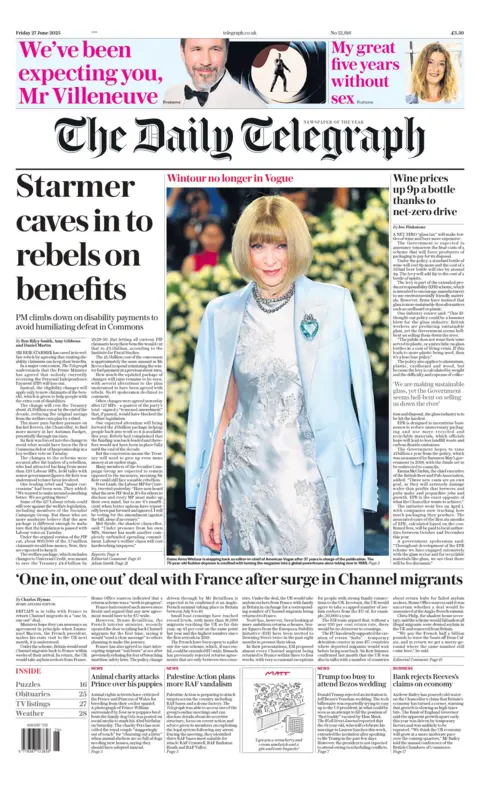The recent political dynamics have shifted prominently as Keir Starmer, the leader of the UK Labour Party, faces increasing pressure from within his party. As reported by various outlets, including The Daily Telegraph and the Daily Mail, there has been a significant rebellion among Labour MPs regarding proposed welfare cuts. This political turmoil has led to what many are calling a monumental U-turn by Starmer, who seems to be yielding to demands from influential party members. Headlines like “Starmer caves in” capture the essence of this backlash, highlighting a fraught moment for his leadership.
The situation escalated to the point where Starmer was compelled to negotiate significant concessions on the welfare bill. The Guardian highlighted that these concessions aim to mollify dissenting voices within the party, which had grown increasingly vocal against the government’s austerity measures. Such a substantial policy shift illustrates the challenge Starmer faces in maintaining cohesion within a party that is deeply divided over welfare issues. The ongoing negotiations also underscore the pivotal role that public sentiment and internal party dynamics play in shaping policy in modern British politics.
Dame Anna Wintour’s departure from the helm of Vogue has also stirred conversations across media platforms, marking a notable transition in the fashion industry. Known for her long-standing dominance as the editor-in-chief, Wintour’s stepping back has led to speculation about the future direction of the iconic magazine. The impact of this change reverberates beyond celebrity culture; it signifies potential shifts in editorial priorities within the fashion landscape, aligning with broader societal trends.
Amid these narratives, the French and UK governments are actively negotiating on matters of immigration. Reports indicate that the UK is “in talks” with France regarding a “one in, one out” arrangement for migrants crossing the Channel, signalling a more collaborative approach to the ongoing migration crisis that has plagued the region. This diplomatic effort is crucial, especially as increasing numbers of migrants have been arriving in the UK, prompting calls for more robust measures to manage the situation effectively.
The Daily Mail’s coverage also touched upon a sensational story involving Blaise Metreweli, the newly appointed head of MI6. This story describes her as the granddaughter of a Nazi spy chief, a revelation that underscores the complexities and historical contexts surrounding leadership roles in critical national security positions. This narrative interplay between personal history and public office illustrates the continuing importance of background in shaping public perception in contemporary politics.
Furthermore, according to The Times, PM’s pledges to protect disabled individuals in relation to the welfare bill could incur significant financial implications, potentially costing the Treasury £1.5 billion. This endeavor reflects an attempt to reconcile welfare commitments with fiscal responsibility amidst a backdrop of economic strain and anticipated tax hikes. The intricate balance of addressing public welfare while adhering to economic constraints continues to open debate.
The sentiment across multiple news outlets suggests a turning point for Starmer as he navigates this labyrinth of internal rebellion, public expectation, and external pressures. The sheer volume of coverage on welfare, immigration, and international diplomacy collectively paints a vivid picture of the challenges facing modern governance in the UK. As party structures evolve and new leaders emerge, these unfolding narratives will significantly influence public discourse and political strategy moving forward.
In summary, the current political landscape characterized by Starmer’s capitulations, international negotiations on immigration, and shifts in leadership across both political and cultural spheres reflect a critical moment in British political history, redefining expectations and strategies for the future. As the situation develops, it holds profound implications not just for the Labour Party but for the broader fabric of UK governance and society.











